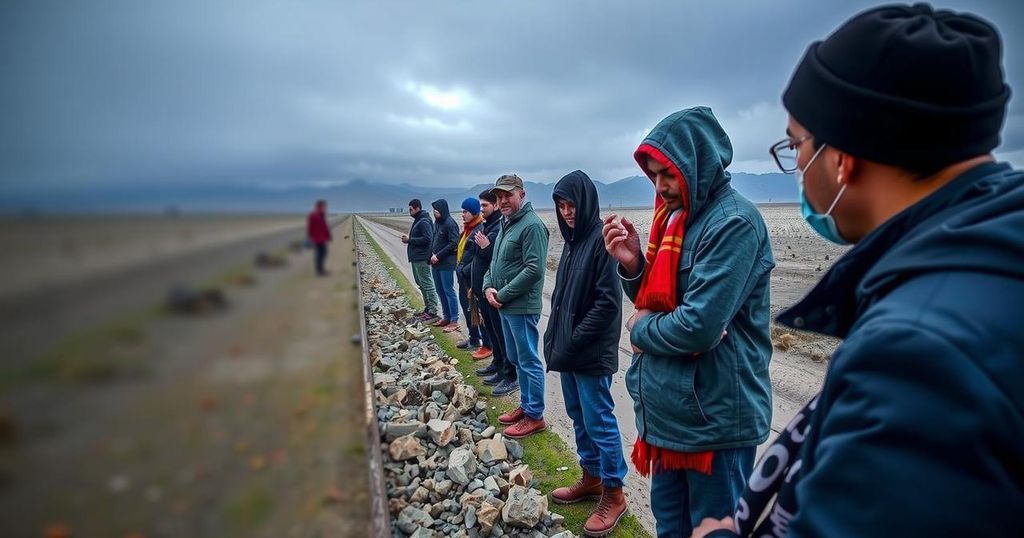International rights groups and the UN have called for an investigation into allegations that Iranian border guards killed Afghan migrants on October 13 in Iran’s Sistan-Baluchistan province. Eyewitnesses have reported violent incidents, while the Taliban government has launched its own inquiry, amidst Iranian denials. The incident highlights increasing tensions regarding the treatment of Afghan migrants in Iran, where over a million have been deported recently. Concurrently, Afghanistan is facing a humanitarian crisis, particularly concerning child malnutrition.
In the recent edition of The Azadi Briefing, significant concerns have been raised regarding reports of Afghan migrants possibly being killed by Iranian border guards. This incident allegedly occurred on October 13 in the Saravan district of Sistan-Baluchistan, a region often characterized by instability and poverty. The United Nations and several international human rights organizations are urging a thorough investigation into these assertions, while the Taliban government in Afghanistan has announced the initiation of its own inquiry. Iranian officials have denied any wrongdoing. Reports from Haalvsh, a Baluch rights group, assert that gunfire and rocket-propelled grenades employed by Iranian forces resulted in numerous deaths among Afghan migrants. However, independent verification of these claims remains unattainable by RFE/RL. Eyewitness accounts, such as that of Taj Mohammad and Jamaluddin from Balkh Province, reflect personal losses and a desire for an international inquiry into this troubling incident. The growing number of Afghan migrants seeking refuge in Iran has intensified scrutiny on Iran’s treatment of these individuals, especially given the ongoing deportations exceeding one million in the past year. Richard Bennett, the UN special rapporteur on human rights in Afghanistan, expressed his profound concern and underscored the urgency for a transparent investigation into the matter.
The plight of Afghan migrants has gained prominence following the Taliban’s resurgence in power in August 2021, alongside the resulting humanitarian crisis in Afghanistan. Millions have sought refuge in neighboring countries, primarily Iran, which has approximately 4 million Afghans residing within its borders. This demographic transition has coincided with reports of increasing hardships faced by these migrants, including heightened violence and systematic harassment by Iranian authorities. The rights of migrants remain at the forefront of international discourse, with recent incidents further exacerbating existing tensions, particularly concerning border controls and treatment by neighboring states.
The reports concerning the potential killing of Afghan migrants at the Iranian border necessitate urgent action and scrutiny from the international community. As investigations unfold, it is paramount that transparency and accountability are prioritized to ensure the safety of Afghan migrants and to address their escalating hardships. Moreover, the humanitarian situation in Afghanistan continues to deteriorate, underscoring the need for concerted efforts to address ongoing malnutrition and health crises among Afghan children. The unfolding events will likely impact diplomatic relations between the Taliban government and Iran while challenging the broader humanitarian efforts in the region.
Original Source: www.rferl.org






